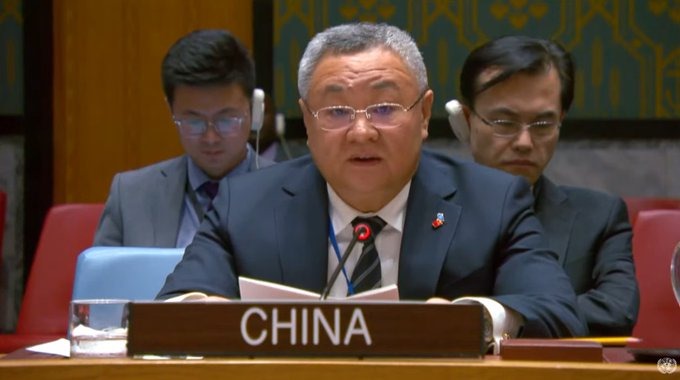RASC News Agency: Fu Cong, China’s Permanent Representative to the United Nations, has raised alarm over the presence and activities of terrorist organizations in Afghanistan, describing them as a serious threat to regional stability and global security. Speaking at a United Nations Security Council session on Monday, February 10, Fu underscored the growing risks posed by these groups, warning that their continued operations could have far-reaching consequences. According to Fu Cong, ISIS, Al-Qaeda, and the East Turkestan Islamic Movement (ETIM) remain active in Afghanistan, collaborating with one another to expand their influence. He cautioned that their unchecked presence could exacerbate security vulnerabilities, not only within the region but across the world.
His remarks come at a time when China has deepened its diplomatic engagement with the Taliban following their takeover of Afghanistan. Despite fostering close ties with the group, Beijing remains wary of the security implications posed by extremist elements operating under the Taliban’s rule. This apparent contradiction highlights the intricate balance China seeks to maintain acknowledging the Taliban as a governing entity while simultaneously expressing concerns over Afghanistan’s role as a sanctuary for militant groups. The issue is further complicated by geopolitical rivalries, which have, in some cases, allowed terrorist organizations to exploit divisions among global powers for strategic advantage. While terrorism is widely recognized as a transnational menace, the designation of certain groups as “terrorist organizations” varies between nations, often reflecting broader political calculations.
A striking example is the East Turkestan Islamic Movement (ETIM) a group that Beijing considers a serious national security threat but which the United States does not classify as a terrorist organization. Despite ETIM’s known involvement with ISIS in the Middle East and its relocation to Afghanistan via Turkey, Washington has refrained from formally designating it as a terrorist entity. This divergence underscores the inconsistencies in global counterterrorism strategies, where political interests often dictate the classification and treatment of militant groups. As major powers navigate their competing priorities, the absence of a unified counterterrorism approach continues to hinder efforts to address the threat posed by extremist organizations. With Afghanistan increasingly becoming a focal point in these geopolitical tensions, questions remain about how the international community will respond to the evolving security landscape in the region.






